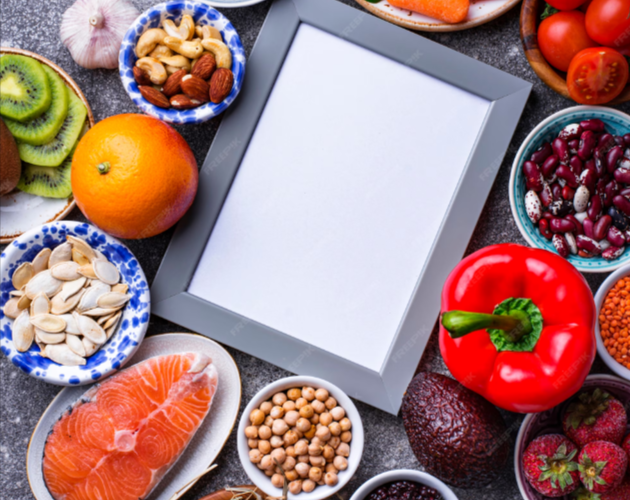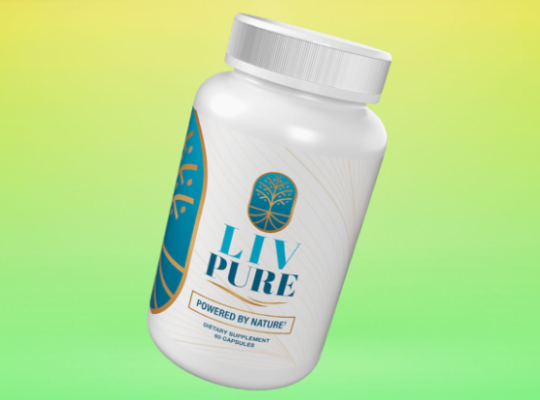Collagen is a protein that plays a crucial role in maintaining the health and elasticity of our skin, joints, and other connective tissues. As we age, our body’s natural production of collagen decreases, leading to signs of aging such as wrinkles, joint pain, and decreased skin elasticity. While there are collagen supplements available in the market, incorporating collagen-rich foods into your diet can also help boost collagen levels naturally. In this article, we will explore a variety of foods that are high in collagen and discuss their benefits for skin and joint health.
The BEST Collagen for Joint Health is Only Made Inside Your Own Body. Read more at the bottom of this article
1. Bone Broth: A Collagen Powerhouse
One of the best sources of collagen is bone broth. Bone broth is made by simmering animal bones, such as chicken or beef bones, for an extended period of time. This slow-cooking process allows the collagen in the bones to break down into gelatin, which is rich in collagen and can be easily absorbed by the body. Additionally, bone broth is packed with essential amino acids and minerals, making it a nutrient-dense addition to your diet.
To make bone broth at home, simply simmer bones, such as chicken carcasses or beef bones, with vegetables and herbs for several hours. You can enjoy bone broth on its own or use it as a base for soups, stews, and sauces.
2. Fish and Shellfish: Marine Collagen
Fish, particularly its skin and scales, is an excellent source of collagen. Marine collagen, derived from fish, has high bioavailability, meaning it is easily absorbed by the body. Marine collagen is predominantly Type I collagen, which promotes the health and elasticity of the skin, bones, tendons, and other connective tissues.
Including fatty fish like salmon and mackerel in your diet can provide a natural collagen boost. Additionally, enjoying dishes like sushi that include fish skin can further enhance your collagen intake.
3. Chicken: Rich in Type II Collagen
Chicken, specifically chicken cartilage, is a natural source of collagen. It is rich in Type II collagen, which is beneficial for joint health and may help alleviate symptoms of arthritis. When selecting chicken, opt for cuts that still have the skin intact, as the skin contains a higher concentration of collagen.
Including chicken wings or cuts that are served with their skin in your meals can be a delicious way to increase your collagen intake.
4. Beef: A Source of Type I and Type III Collagen
Bovine hide and bones are rich sources of collagen. Bovine collagen, derived from beef, primarily consists of Type I and Type III collagen. These types of collagen are essential for the health and strength of the skin, bones, tendons, fibrous cartilage, connective tissue, and teeth.
Choosing cuts of beef that include connective tissue, such as short ribs or chuck roast, can help increase your collagen consumption. Slow cooking methods like braising can further enhance the collagen content in these cuts.
5. Eggs: Supporting Collagen Production
While eggs themselves do not contain collagen, they are rich in nutrients that support collagen production in the body. Egg whites are a source of proline, an amino acid necessary for collagen synthesis. The yolks, on the other hand, contain nutrients like biotin and sulfur, which are essential for collagen production.
Incorporating eggs into your diet, whether scrambled, hard-boiled, or in other preparations, can provide your body with the necessary building blocks for collagen production.
6. Citrus Fruits: Boosting Collagen Synthesis
Citrus fruits like oranges and grapefruits are not only high in vitamin C but also play a crucial role in collagen synthesis. Vitamin C is essential for the production of pro-collagen, the precursor to collagen, in the body. Consuming citrus fruits can help ensure adequate vitamin C levels to support collagen production.
Enjoying a variety of citrus fruits as part of your daily fruit intake can contribute to your overall collagen production.
7. Berries: Supporting Natural Collagen Production
Berries, such as strawberries and blueberries, are rich in antioxidants and vitamin C, which are vital for collagen synthesis. Antioxidants protect collagen from damage caused by free radicals, while vitamin C supports the production and utilization of collagen in the body.
Adding a handful of berries to your morning smoothie or as a topping for yogurt can be a delicious way to enhance your collagen production naturally.
8. Garlic: Supporting Collagen Rebuilding
Garlic may not contain collagen itself, but it supports collagen production and rebuilding in the body. Garlic is rich in sulfur, which is believed to play a role in collagen production. It also contains compounds like taurine and lipid acid, which help rebuild damaged collagen fibers.
Incorporating garlic into your cooking can not only add flavor but also support your body’s natural collagen production.
9. Leafy Greens: Nutrient Powerhouses for Collagen
Leafy greens like spinach, kale, and Swiss chard are packed with nutrients that support collagen production and overall skin health. These greens are rich in vitamin C, antioxidants, and other essential nutrients that play a role in collagen synthesis.
Adding a variety of leafy greens to your salads, smoothies, or stir-fries can provide your body with the necessary nutrients for collagen production.
10. Nuts and Seeds: A Source of Collagen-Boosting Nutrients
Nuts and seeds, such as almonds, walnuts, and flaxseeds, are rich in essential fatty acids, antioxidants, and minerals that support collagen production. These nutrients help protect collagen from damage and promote its synthesis in the body.
Including a handful of nuts and seeds as a snack or adding them to your meals can provide a collagen-boosting addition to your diet.
Conclusion
Incorporating collagen-rich foods into your diet can be a natural and delicious way to support your skin and joint health. Bone broth, fish, chicken, beef, eggs, citrus fruits, berries, garlic, leafy greens, nuts, and seeds are all excellent sources of collagen or nutrients that support collagen production. By including these foods in your meals, you can nourish your body from within and promote the health and vitality of your skin and joints. So why not start adding these collagen-boosting foods to your diet today?
Remember, while these foods can provide a natural source of collagen, it’s important to maintain a balanced diet that includes a variety of nutrients for overall health and well-being. If you have any specific dietary concerns or health conditions, it’s always a good idea to consult with a healthcare professional or registered dietitian before making significant changes to your diet.
Bonus
If you feel like you’re stuck with joint discomfort as you age, you’re not alone. But there is hope… Read more Here




